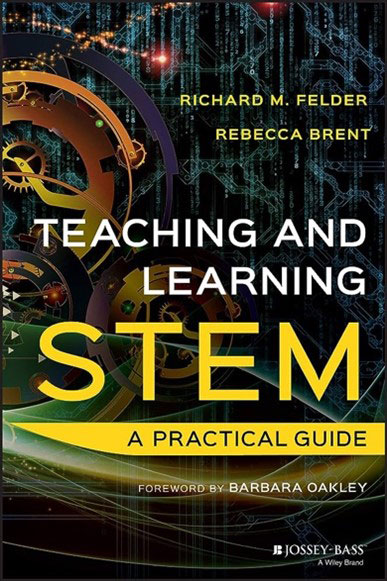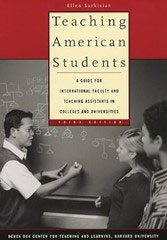Exploring the Effects of Our Teaching
If we think about teaching as an inquiry-driven process, our curiosity about our students, and about learning, can lead us to improve our practice. Among the many useful questions we can pose, this one is essential: How do I know whether my students are learning what I intend for them to learn?
Sometimes it’s difficult to know, especially if students’ role in a course is mostly to pay what sociologist Jay R. Howard calls “civil attention” during class and then take exams. In the time between those exams—in other words, throughout the majority of the course—neither the instructor nor the students have any feedback about whether students are making progress toward the learning goals. The exam will be the first opportunity to find out.
Even when class sessions feature some traditional discussions, where just a few students serve as what Howard calls “talkers” and the majority are actually “non-talkers” who rely on the talkers to make it appear as though a robust conversation is happening, we can’t get an accurate sense of whether students are doing the learning we intend for them to do, or how the learning experience is going for them.
This is why it’s essential we adopt or develop methods for both the students and us to get feedback on whether students are making appropriate progress. And if they’re not, what might help them learn what we intend for them to learn?
There are many ways to take a snapshot of how students are doing in a course. Formative assessments—whether they are activities, assignments, reflections, quizzes, or something else—can give us a sense of their progress toward the learning goals: what they are doing well and should continue, and what they need to work on or adjust. (By this point of the semester, students should already have formative feedback on their work and an accurate sense of their progress in the course.)
It’s useful for students to be able to communicate with us in other ways, too: We can ask them to write about how the course is going, or to take a survey on which they can provide quantitative, qualitative, or both types of feedback on our teaching. Samples are available here and here. You can use a template or create and distribute your own survey during or outside of class time, using Canvas, Qualtrics, or another survey app. We’ve developed a sample midterm evaluation that you can import into Canvas, and instructions are available here.
Since midterm surveys give us vital information on students’ experience of our teaching, in time to act upon it, they often improve end-of-semester evaluations as well. But there are two important provisos: First, students must be confident that the feedback process is safe and anonymous, so that their honesty will not negatively affect your relationship or their grade. Second, it’s essential that you follow up with students, thanking them for their feedback and outlining how you’ll use it: accommodating reasonable, useful suggestions and explaining why others aren’t feasible this semester.
If you’d like support, we’re happy to help you design a method of collecting feedback that works well for your course. We can also help you interpret the results, consider adjustments you’d like to make, and plan how you will discuss the feedback with students. Just send us an email at pro-teaching@fsu.edu, and we’ll be at your service. We look forward to working with you!
FALL READING GROUPS
We have one reading group that hasn’t started yet, and another one with a special guest that is open to all international faculty and teaching assistants. We hope you can join us! Please register here.

Thursdays: 10/19, 10/26, 11/2
10:00–11:30 a.m. in Dirac Library Conference Room
Print copy, delivered through interoffice mail
Would you like to incorporate more active learning into your STEM course, but are unsure where to start? Richard Felder and Rebecca Brent provide practical, evidence-based strategies for designing and teaching STEM courses to promote student learning and retention. Drawing from decades of research and experience, the authors provide concrete suggestions of evidence-based methods you can implement right away, without major preparation time, brought to life by rich examples from college courses across STEM disciplines and levels.

Tuesdays: 9/26, 10/3, 10/10
12:00–1:30 p.m. Meeting site: TBD
Electronic materials
Join our reading group for international faculty navigating American higher education. Explore the intricacies of teaching American college students with carefully selected book excerpts and articles. Gain insights into cultural nuances, teaching strategies, and fostering inclusion in the classroom. Share experiences and ideas with a supportive community of educators. Whether you’re a seasoned professor or new to American academia, this group will enhance your teaching skills and connect you with peers. We invite you to join us for an enriching educational journey that empowers you to make a lasting impact on your students.
Click here to explore the book.
Click here to watch the video accompanying the book.



